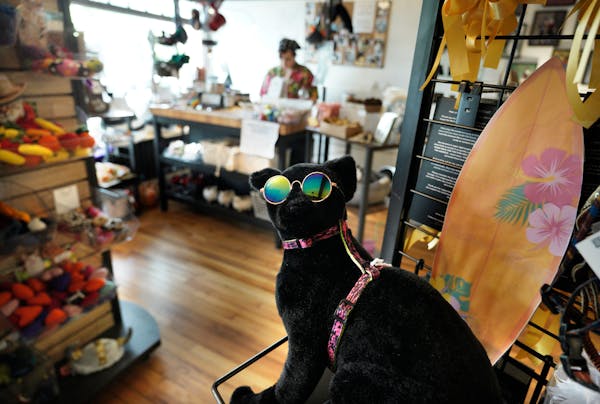General Mills is running its final shift at its Iowa pet treat plant Friday, shuttering the factory amid declining consumer spending on pet extras.
Two years after buying the plant, which employs more than 200 people, the Golden Valley-based company found it can make more money having a third-party manufacturer produce some of its Blue Buffalo pet treats.
The company announced the closure of the Independence, Iowa, facility in May and gave a more detailed explanation to the Star Tribune last month.
"There were efficiency and investment issues, and as we looked at that relative to the external option, a long-term arrangement with an external partner became a better economic package," said Chief Financial Officer Kofi Bruce.
General Mills bought the Iowa plant as part of its $1.2 billion acquisition of Tyson's pet treats business in 2021. The True Chews and Nudges products have since been incorporated into the Blue Buffalo brand, which General Mills paid $8 billion for in 2018.
The Independence plant is the second-largest employer in the city of 6,000, which is located about 25 miles east of Waterloo. A notice sent to state officials this summer said 211 people would be laid off effective Oct. 6. An additional six people will be laid off when the plant is fully closed in December.
"While never an easy decision to close a manufacturing plant, these changes are in direct support of our pet supply chain strategy, which supports the long-term growth of our business," General Mills said in a statement this spring. "We recognize that this announcement is difficult news for the Independence Buffs. Throughout this transition, we will focus on care and concern for our employees, as well as a smooth and seamless transition for the business and our partners."
The closure announcement curiously came amid supply chain woes for Blue Buffalo, which had not been able to meet rising demand for dry pet food especially. The brand's plant in Indiana is getting a $200 million expansion in part to avoid costly outsourcing of dry food manufacturing.
Treats, and the Iowa plant, were a different story, General Mills executives said. That's because discretionary spending — like dog treats — has fallen in response to inflation and a return to pre-pandemic routines.
"Pet parents are out and about, moving around more, and going back to the office. They're not home to treat as much," General Mills CEO Jeff Harmening said. "And consumers are getting cautious when it comes to treating, which is a little more discretionary, so they're trading down to lower-priced options."
In response, Blue Buffalo is rolling out smaller sizes of its treats to get lower-priced options on shelves.
"We have a premium brand, and we have premium treats, so one of the things we're doing is providing treats at price points that consumers can really afford," Harmening said.
The brand is also introducing a medium size for its dry food — typically only sold in large or small quantities — in response to shoppers "trading down to middle sizes" offered by other brands, the CEO said.
Blue Buffalo is expected to have stagnant sales ahead of the Indiana expansion that wraps up next summer and as price increases slow. This summer General Mills' pet food sales were flat, and profits were lower, compared to the year before.
"We're going back to some more hard-hitting advertising that really gives pet parents a very rational reason to believe why Blue Buffalo feeds them like family," Harmening told analysts last month.
Pet retailers are also signaling weaker sales ahead as the pandemic-era boost in pet adoptions fades and consumers cut costs where they can. Petco stock has dropped nearly 60% this year, and online pet retailer Chewy has seen its stock price plummet as well.
Leaders at both companies have recently highlighted "pressures" facing the industry due to shifting consumer spending.
Minnesota's med spa industry rises in popularity — and with little regulation

Ramstad: Readers say Walmart won't be paying the ultimate price of Trump's tariffs

How Minnesota businesses can spot and prevent invoice fraud
No place for cryptocurrency in retirement portfolios

